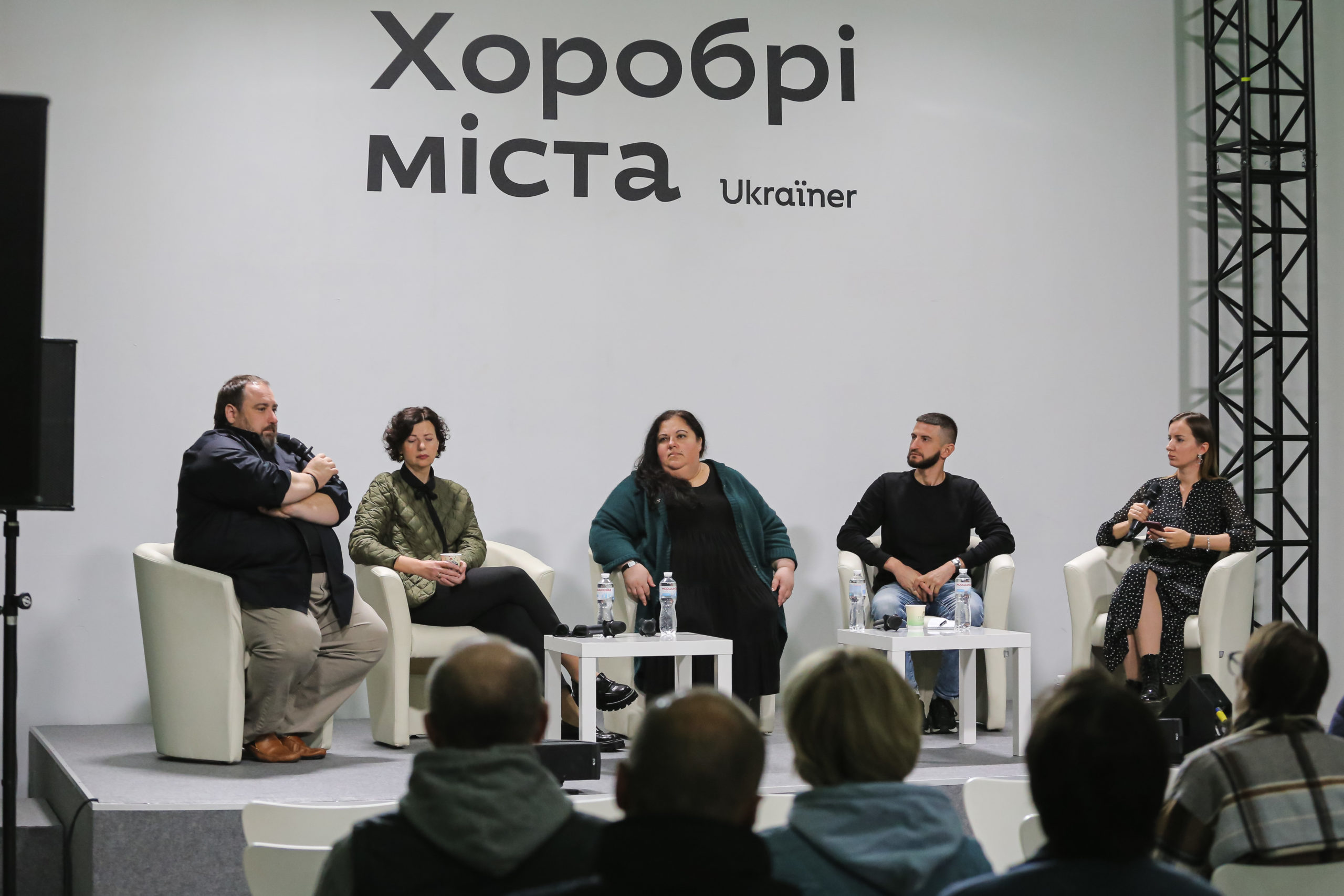How to talk about the past and present war in the de-occupied territories: a panel discussion held
How to rethink and integrate the previous historical experience in the de-occupied territories? How to return to reality people, who were under occupation for a long time, and therefore under the influence of Russian propaganda? How to work on decolonization and de-Russification in liberated settlements? This was discussed at the panel discussion “Politics of Memory: How to Build New Narratives”, which took place within the framework of the “Horobri Mista” (Brave Cities) charity event. The Ukrainer team organised and held the event.
The Acting Director General of the Holodomor Museum, Lesia Hasydzhak, Deputy Director General of the Ukrainian Institute, Alim Aliyev, expert on long-term strategies Yevhen Hlibovytskyi, Director of the Mystetskyi Arsenal, Olesia Ostrovska-Liuta and journalist, Darka Hirna, who moderated the event, joined the discussion.
It will not be possible to talk about topics that are still in the grip of myths and outright lies in Russia, tolerantly this time. Because we have been too tolerant for 30 years, Lesia Hasydzhak is convinced. We had laws on language, and decommunization too late… This led to the fact that we have people in those territories who became collaborators because they saw in our enemies not new enslavers but “brotherly people”.
“At the Museum, we have experience: in 2017, we travelled to the south and east of Ukraine, met with teachers, methodologists from education departments and distributed methodical materials,” Lesia Hasydzhak says. – The first acute phase of the war was behind us, but even then, there were teachers who told us: “What are you imposing on us? It is enough to talk about the Holodomor as much as possible…” How to act now? For example, we started our museum project, “Chronicles of Genocide”.
There, we draw parallels between the events of the past (dekulakization, collectivization, Holodomor) and the current war on the example of specific settlements. When a town or village is de-occupied, we go to the archive and pick up documents from that period. The first stories have already been created and published, which show that there was a huge movement of resistance to both collectivization and colonization in those settlements that were again subjected to occupation today. Therefore, returning this memory, we should delve into the past and remind people about the history of specific families and settlements. And through this personalized level, try to change people’s consciousness on a global level.”
